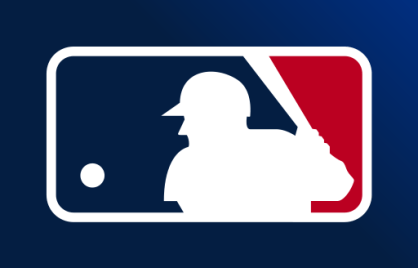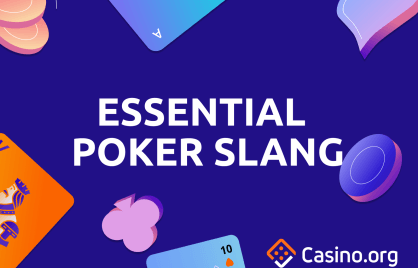Decision Fatigue in Poker: How Mental Energy Shapes Your Game
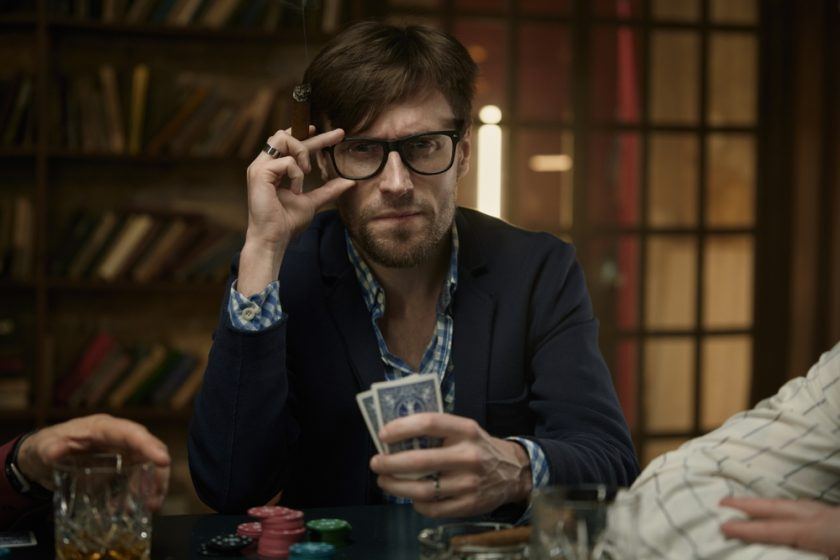
Summarize this post
Decision Fatigue in Poker: What You’ll Learn
- Understanding Decision Fatigue: Discover what decision fatigue is and how it impacts your decision-making quality during poker sessions.
- Identifying Symptoms: Learn to recognize the signs of decision fatigue, including snapping decisions and struggling with basic calculations.
- Causes of Decision Fatigue in Poker: Explore why poker is particularly vulnerable to decision fatigue due to its high volume of choices and emotional stakes.
- Strategies to Manage Mental Energy: Gain practical habits to reduce decision fatigue, such as structuring your sessions with breaks and simplifying routine decisions.
- Building Long-Term Resilience: Learn about lifestyle changes and long-term habits that enhance focus and stamina, helping you perform at your best in poker.
Poker is primarily a game of decisions. Whether you’re weighing ranges, stack sizes, positions, or opponent tendencies, every hand presents a choice. Even when you fold, you make a decision. Over the course of a long session, this accumulation of choices can add up to hundreds, if not thousands, of decisions made.
At the beginning of your playing session, those choices feel precise and deliberate. You are patient, calculating, and fully engaged. However, as the hours wear on, something changes. You may find yourself rushing through decisions, clicking buttons without much thought, or avoiding complex scenarios because they feel overwhelming. This shift isn’t just a minor lapse—it’s known as decision fatigue.
What Is Decision Fatigue in Poker?
Decision fatigue refers to the gradual decline in decision-making quality experienced after making repeated choices. The more decisions you make, the more your mental energy gets depleted, making it increasingly difficult to think clearly, evaluate your options, and resist taking mental shortcuts.
Psychologists describe willpower and attention as limited resources. Just like any muscle, they can only function at full capacity for a limited amount of time before fatigue sets in.
Early in a session, your brain operates efficiently; you’re able to calculate pot odds, maintain patience when folding, and identify subtle patterns in your opponents’ play. However, as the number of decisions builds, your mind looks for shortcuts, and this is when mistakes begin to occur.
In poker, decision fatigue presents itself in several familiar ways:
- Snap decisions without going through your usual thought process.
- Struggling with basic math late in a session, even though it feels easy when you’re fresh.
- Avoiding complex spots because they require too much mental effort.
- Going on autopilot instead of actively engaging in the game.
I once worked with a tournament player who was highly meticulous in the early stages. He monitored stack sizes, adjusted ranges, and exhibited patience. However, after playing for 10 to 12 hours, he began making careless shoves and calling in spots he would normally avoid. His technical knowledge didn’t deteriorate, but his mental energy did.
Importantly, decision fatigue isn’t the same as tilt. While tilt typically involves emotional reactions, decision fatigue causes leaks in your game because your brain simply lacks the energy to maintain high-level thinking. This makes decision fatigue one of the most dangerous yet overlooked threats to a player’s consistency in poker.
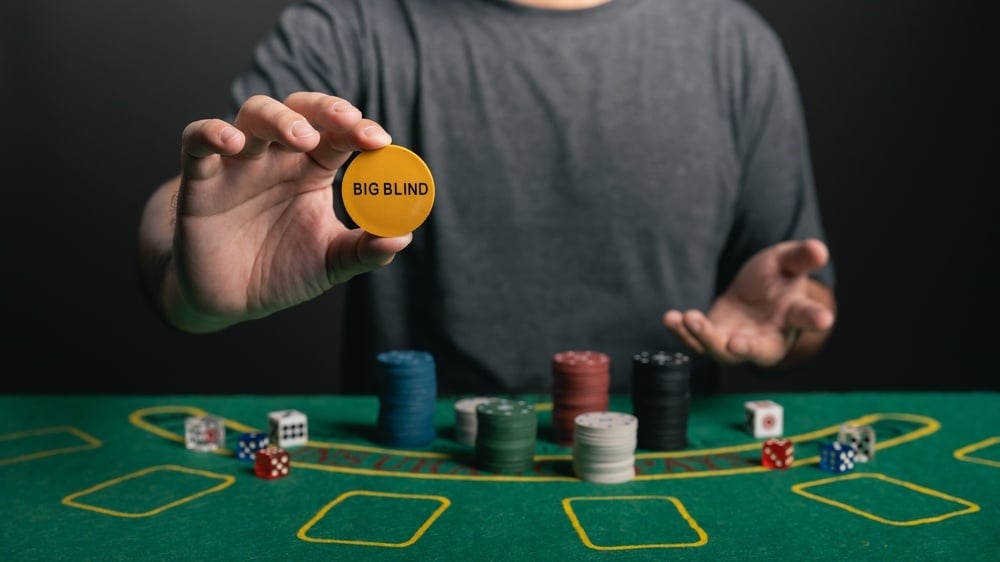
Image Credit: Kitreel/Shutterstock
Why Poker Is Especially Vulnerable to Decision Fatigue
While decision fatigue can occur in everyday life, poker amplifies the issue. Few environments demand as many consecutive high-stakes decisions without structured recovery.
1. The Sheer Volume of Choices
Poker is a decision-dense game. Every hand commands thought: whether to fold, call, raise, size your bets, assign ranges, and track positions. Even making a fold involves micro-calculations. Over a long cash session or a deep tournament run, players can face hundreds or even thousands of decisions. This overwhelming volume drains mental energy.
2. Emotionally Charged Decisions
Poker decisions carry significant emotional weight—they are tied to money, ego, and variance. For example, calling on the river isn’t merely a mathematical equation; it’s also a test of your resolve. Therefore, fatigue can build faster in poker than in most other cognitive tasks.
3. Long, Irregular Sessions
Unlike athletes who compete in set time intervals with built-in breaks, poker players often engage in extended sessions with little downtime. A deep Multi-Table Tournament (MTT) can last 12 to 14 hours, and a lucrative cash game can keep you glued to the table until sunrise. Without scheduled breaks, mental energy becomes depleted.
4. Lack of Recovery Training
Athletes often train their bodies to recover effectively, while poker players seldom consider decision-making as a limited resource. They treat mental focus as if it should last indefinitely, even though it clearly does not.
I worked with a cash grinder who was confused by his declining results during marathon sessions. He attributed it to variance until we analyzed the hands he played. The issues weren’t strategic errors; they were lapses in discipline—loose calls, missed bluffs, and skipped value bets. Decision fatigue contributed to his diminishing edge.
Poker’s unique combination of volume, emotional weight, and irregular hours renders it particularly susceptible to decision fatigue. Recognizing this reality is the first step toward preserving your mental energy.
The Costs of Decision Fatigue in Poker
When decision fatigue takes hold, its effects are not always obvious or dramatic. You may not be “tilting”—slamming the table or storming out—but the leaks in your play are subtle yet costly.
Tactical Mistakes
Decision fatigue erodes focus. Bet sizes may drift aimlessly, valuable bluffs may be skipped, and players tend to make easier calls rather than fold. These aren’t gaps in knowledge; they are execution errors resulting from mental exhaustion.
Emotional Shortcuts
As mental energy declines, emotional defenses weaken. Tilt, frustration, and entitlement can creep in. A player who begins the session with composure may suddenly snap after a bad beat or force a marginal situation just to escape the discomfort.
Strategic Laziness
Decision fatigue pushes players into autopilot. Instead of engaging thoughtfully, they fall back on default tendencies. You might automatically continuation bet without considering board texture, or call a raise when you know it should have been a fold. These shortcuts accumulate, turning hours of play into wasted opportunities.
The true cost of decision fatigue is consistency. While any player can perform well for a short period, the real challenge is maintaining high-quality decision-making during longer sessions when fatigue is most pressing. Without a plan, decision fatigue ensures you leave money on the table.
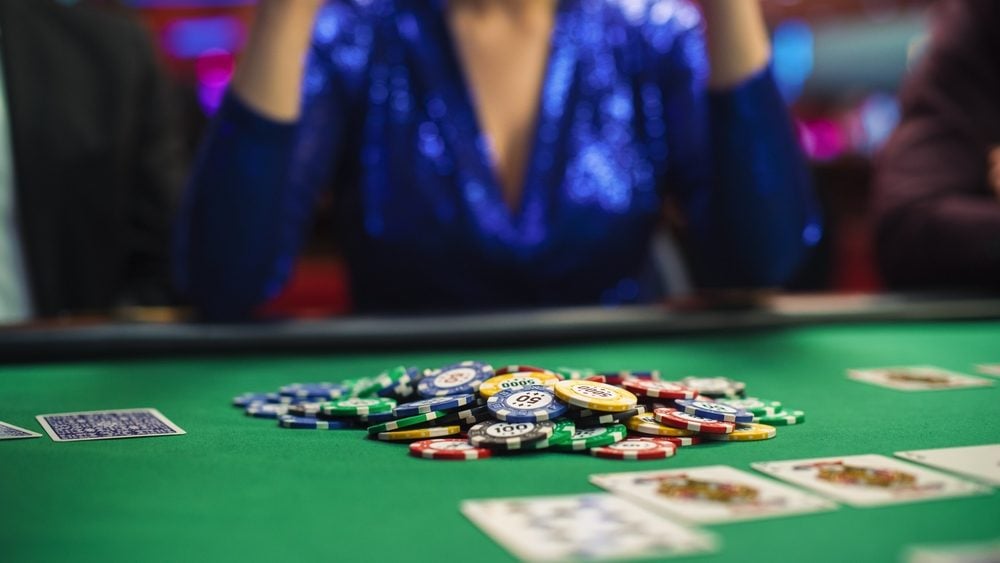
Image Credit: Kitreel/Shutterstock
Managing Mental Energy in the Moment
The first line of defense against decision fatigue is learning how to manage your mental energy while playing. Although you cannot eliminate fatigue entirely, you can slow its onset and protect your decision quality with some deliberate habits.
Structure Your Sessions with Breaks
Recognize that focus is not limitless. Short, planned breaks allow your brain to reset before it crashes. Online players can utilize natural pauses between levels or set a timer for every 60-90 minutes. Live players can stand up, walk around, or take a short break outside for fresh air. Even five minutes of genuine rest can make a difference.
Simplify Routine Decisions
Not every situation requires full mental energy. Develop heuristics for common situations to conserve mental bandwidth for more complex decisions. For instance, you might establish a default strategy for blind versus blind play or pre-decide on early-position folds. These mental shortcuts can save energy for critical moments.
Use Anchor Questions
One effective method to stay engaged without overloading is to assign yourself a guiding question for each hand, such as “What am I trying to accomplish with this bet?” or “What does my opponent’s range look like here?” This keeps your focus sharp and intentional, preventing you from drifting into autopilot.
Protect Your Fuel with Hydration and Nutrition
Mental fatigue can be exacerbated by dehydration or nutritional crashes. Consuming water and balanced snacks, along with steady energy sources like fruits or nuts, helps sustain brain function better than caffeine spikes or junk food.
Managing decision fatigue in the moment isn’t about striving for perfection; it’s about conserving energy where possible and directing it to where it matters most.
Long-Term Habits to Reduce Decision Fatigue
While in-session adjustments assist with managing mental energy on the fly, the real solution to decision fatigue arises from developing long-term habits that enhance your focus day after day. Remember, poker is a marathon, not a sprint, and your lifestyle choices significantly impact how much decision-making energy you bring to each session.
Prioritize Sleep
Nothing restores mental energy like quality sleep. Sleep deprivation exacerbates decision-making difficulties and heightens emotional reactivity. Many players take pride in grinding late into the night, but the cost is high: poor sleep ensures underperformance the next day. Treat sleep as an essential performance tool.
Train Your Body, Train Your Mind
Regular exercise not only keeps you fit but also enhances concentration, mood, and resilience. Players who integrate physical training into their routines report sharper thinking and greater endurance during lengthy sessions. Stress-management techniques such as meditation or breathwork can also bolster mental stamina.
Design Your Environment
Minimize distractions that sap mental energy unnoticed. A clean, organized playing space decreases the trivial choices your brain must make. Online players benefit from streamlined setups; live players can enhance focus by putting away phones between hands.
Play the Right Volume
More hours at the poker table aren’t necessarily better. Many grinders overestimate their focus sustainability. Reducing table counts or setting limits on session lengths often yields improved results because players make fewer but sharper decisions.
Long-term habits may not seem glamorous, but they form the foundation of your poker performance. Sleep, fitness, an arranged environment, and volume management all contribute to enhancing your decision-making stamina, giving you the best chance to maintain focus throughout your poker sessions.
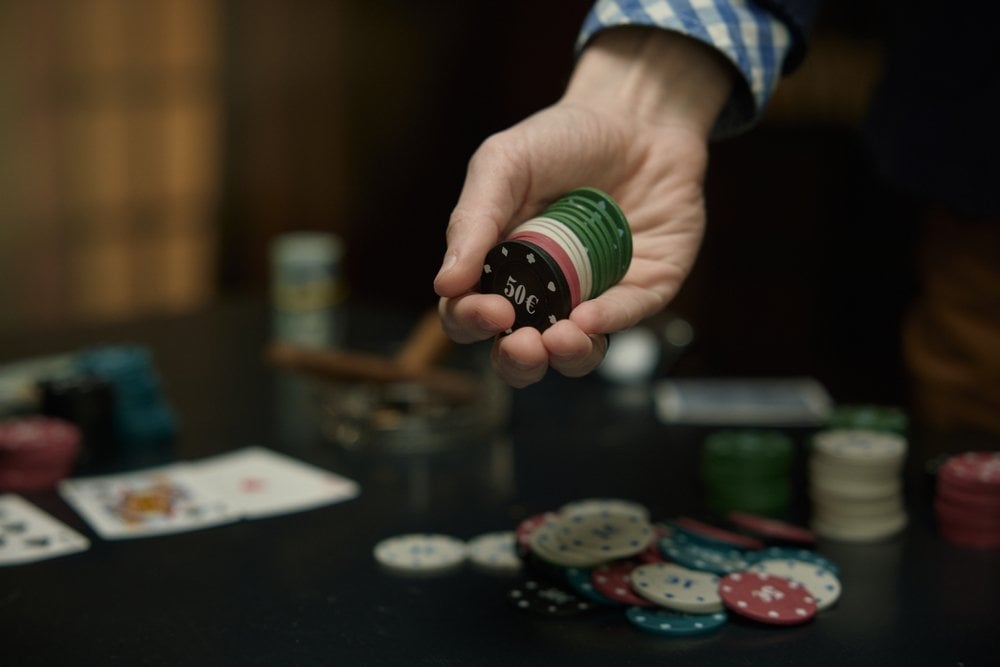
Image Credit: Kitreel/Shutterstock
Building Your “Decision Energy Bankroll”
Every poker player recognizes the importance of guarding their bankroll. Spend it recklessly, and you risk going broke. Manage it wisely, and you can continue playing for years. The concept applies similarly to your mental energy—it serves as your decision energy bankroll, and how you manage it will determine the quality of your game.
Invest Where It Matters Most
Just as you wouldn’t risk your entire bankroll on a marginal hand, don’t waste decision energy on trivial situations. Reserve your sharpest focus for scenarios that significantly impact your win rate—big pots, ICM spots, and tough matchups against skilled opponents.
Use Systems for Routine Spots
Consider pre-flop ranges, standard c-betting scenarios, and common folding decisions as your “fixed expenses.” Automating these through study and established heuristics allows you to conserve mental energy for more intricate situations. This is akin to budgeting—you know where the money (or energy) is going without deliberating each time.
Don’t Overextend
Overextending session lengths or multitabling beyond your capacity resembles overleveraging your bankroll. It may feel productive in the moment, but it rapidly depletes reserves, preventing you from bringing your best game when it truly matters. Protecting your decision energy relies on recognizing your limits and adhering to them.
Refill the Account
Much like supplementing your bankroll with winnings, you require practices that replenish mental energy. Consistent sleep, breaks, recovery days, and hobbies outside of poker all “deposit” energy back into your mental account. Without these deposits, you’ll continuously operate from a deficit.
When you manage your decision energy bankroll with the same discipline you apply to your poker chips, you’ll stop leaking focus and start achieving consistency. That consistency is key to provoking long-term success.
Overcoming Decision Fatigue
Poker is fundamentally a game of decisions, and the quality of those decisions determines your edge. The challenge is that many players mistakenly treat mental energy as limitless, grinding until their brains run empty. Although decision fatigue may not result in the explosive outbursts of tilt, it quietly drains your edge through hasty decisions, missed opportunities, and lazy folds.
The good news is that decision fatigue can be effectively managed. By understanding what it is, recognizing how it manifests, and treating your mental energy like a bankroll, you can sustain your focus deep into your sessions. Utilize short-term strategies like breaks, anchor questions, and smart nutrition to maintain steadiness, while long-term habits such as prioritizing sleep and shaping your environment can bolster resilience that lasts. Just as bankroll management safeguards your capacity to play, decision energy management secures your ability to make excellent choices.
Title Image Credit: Kitreel/Shutterstock

